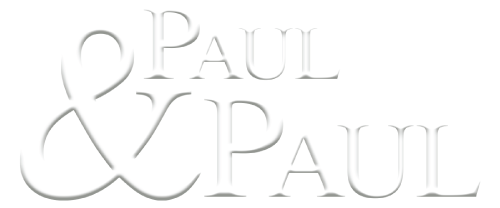At Paul & Paul, we understand that inventors need experienced and knowledgeable patent attorneys in Philadelphia to properly protect their inventions. We are a team of experienced intellectual property (IP) lawyers who specialize in helping inventors get the legal protection they need for their ideas. Our lawyers have extensive experience navigating the complexities of patent law, as well as related areas such as copyright and trademark law. We will help you understand the patent process, identify potential barriers to filing a successful patent application, and ultimately achieve your dream of protecting your invention.
We understand the importance of protecting your innovations. Whether you’re an individual inventor or a business, we have the experience and knowledge necessary to help you obtain the protection you need for your intellectual property. Our experienced patent attorneys can provide you with comprehensive legal advice and representation throughout the entire patent process. Our attorneys have decades of experience in all aspects of patent law, from filing provisional patents to prosecuting claims before the United States Patent and Trademark Office (USPTO). Our lawyers are highly knowledgeable and understand the nuances of patent law. We will provide you with comprehensive legal advice tailored to your specific needs in order to ensure that your invention is properly protected.
Contact a Philadelphia patent attorney today to learn more about how we can help you protect your invention. We look forward to helping you bring your idea to life.

Getting a patent can be complex, so it’s important for individual inventors to seek help from an experienced patent attorney. A patent attorney can help you navigate the patent process and ensure that all of your patent requirements are met.
The first step is to determine whether or not the invention or idea you have meets the criteria for patentability. To do this, your patent lawyers must have a thorough understanding of patent law and know what kind of invention qualifies as patentable.
In order to patent an idea, a patent application must meet the patentability criteria set forth by the United States Patent & Trademark Office (USPTO). The patent requirements include:
Novelty means that the invention needs to be something that has not been seen or done before. Non-obviousness means that the invention cannot be easily conceived from what is available in the public domain. Utility means that it must have a purpose or function of providing a benefit. Subject matter eligibility refers to if the invention meets certain criteria for patentability as outlined by patent law such as being novel, useful, and non-obvious.
Once it is determined that the invention is patentable, the process begins by filing a provisional patent application with the USPTO. This marks the start of the patenting journey and establishes a priority date for when your invention was created.
A patent attorney at Paul & Paul helps guide clients through the complex process of obtaining patents. We have extensive experience in drafting and filing patent applications with the USPTO. Our attorneys will help you identify any potential issues so that they may be addressed before submitting your application. Our patent attorneys not only have a keen knowledge of the law and patent practice, but they also have extensive backgrounds as engineers, design engineers, production engineers, research scientists, and patent examiners. They understand technology. They understand innovation. They know intellectual property law. They know the legal issues and key considerations when it comes to patent applications to ensure your application starts out correctly. This drives down the cost while laying a solid foundation for obtaining the patent.
Our lawyers are well-versed in proceedings before the USPTO and other institutions involved in the patent process. We can help you navigate any potential opposition to your patent application, as well as appeals or reexamination proceedings. Our attorneys will provide you with legal services and advice throughout these proceedings and do all that it takes to get your patent granted.
If your patent application is rejected or opposed, our attorneys can provide experienced representation and litigation in the courtroom. We are dedicated to protecting your ideas and will strive to get you the best results possible. Our lawyers have extensive experience litigating cases involving intellectual property disputes.
At Paul & Paul, we specialize in helping inventors in a variety of verticals. Our attorneys have experience helping inventors in the following industries:
No matter your industry, our experienced attorneys will help you obtain the patent protection you need.
Applying for a patent can be challenging. Let our team guide you along the way and draft an application that will meet the requirements.
Licensing your assets can lead you to revenue you didn't know was possible. We will make sure you understand your rights.
With our experience, you can ensure that we'll provide a fair argument for any roadblocks you may face.
We will work directly with you and answer any questions that you have during throughout the patent process.
About Us
Contact Us
100 N. 18th Street, Suite 830
Philadelphia, PA 19103
Office: (215) 568-4900
Fax: (215) 567-5057
Email: info@paulandpaul.com
© 2023 All Rights Reserved | Paul & Paul